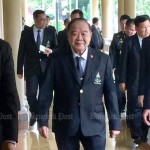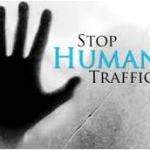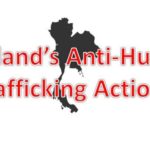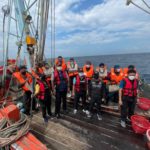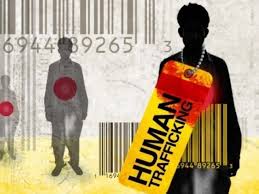
Police have obtained warrants for the arrest of 11 more suspects in the trafficking of 98 Rohingya migrants intercepted in southern Nakhorn Sri Thammarat province in January, in a case that led to the discovery of the largest human-trafficking ring in Thailand a few months later.
The new warrants are a clear signal that the Thai authorities are not easing up in their war against human trafficking, despite already receiving praise for breaking up a major trafficking syndicate and arresting scores of suspects. Police are continuing to investigate and uncover new evidence to allow them to indict and arrest more members of the syndicate and other syndicates preying on migrants and Thai citizens.
The new warrants stem from arrests made in January when five trucks carrying 98 Rohingya migrants were found during a search at a checkpoint. Police arrested the drivers but no one else at the time. Consequently, human rights groups and anti-trafficking activists criticized the police for only arresting low-level drivers and not pursuing the “big fish.”
But behind the scenes, police were quietly using a variety of tools at their disposal to gather evidence, testimony and piece together a portrait of a major criminal organization specializing in the smuggling of migrants, who mainly originate from Myanmar and Bangladesh. The gang was transnational, and one of those targeted with the most recent warrants is a Myanmar citizen.
By May, police had enough leads to uncover a string of virtual prison camps the traffickers had been running close to the border with Malaysia. Mass graves were also found. Not long afterward, Malaysian authorities found even more camps and graves on their side of the border.
That led to over 200 arrest warrants, including those for a Thai Army general, police officers, local politicians, bureaucrats and others. Nearly 100 of the suspects are in custody, and the first hearing in their trial was held in Bangkok last week at the special division of the Criminal Court devoted to human trafficking cases.
The creation of the special court was one of a full menu of measures and reforms initiated by the government of Prime Minister Prayut Chan-o-cha in response to Thailand receiving a low ranking in the annual Report on Trafficking in Persons issued by the United States Department of State.
Prime Minister Prayut has made ending human trafficking a national priority, adopted a policy of zero tolerance and warned that no one involved in trafficking would be spared no matter their rank, status or affiliation. The arrests of military and police officers, along with politicians, constitute clear proof the Prime Minister is sincere and determined.
The government has been implementing a “Five P’s” approach consisting of actions in Prevention, Policies, Protection, Prosecution and Partnerships. Anti-trafficking laws have been amended and strengthened to aid law enforcement. Services for victims continue to be improved, with many repatriated and others given counseling and permission to work in the Kingdom. Inspections and enforcement have been beefed up, especially in the fishing industry. Efforts to address root causes are being made through partnerships with neighboring countries to accelerate economic development and work more closely together on intelligence.
In addition, Prime Minister Prayut took the leading role in convening a regional summit on the problem of trafficking in May that was attended by representatives from 15 countries and international organizations.
For more information and updates about Thailand’s policies and actions against trafficking in persons and related issues, visit www.thaianti-humantraffickingaction.org

